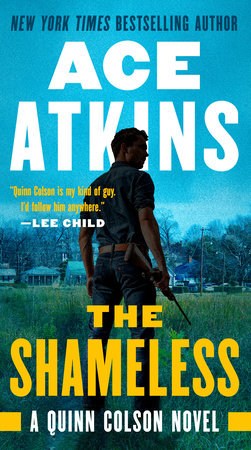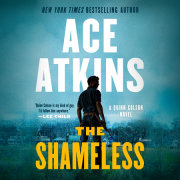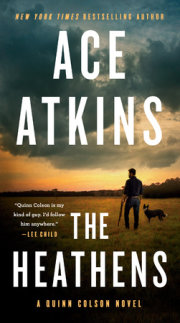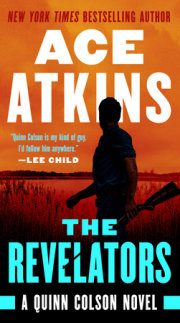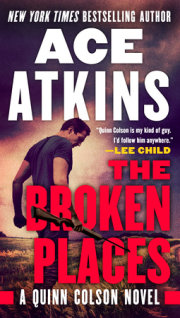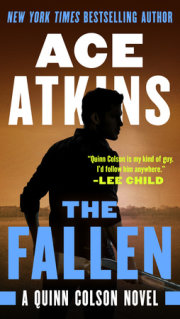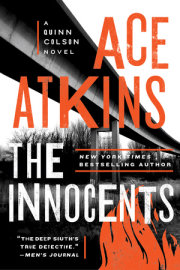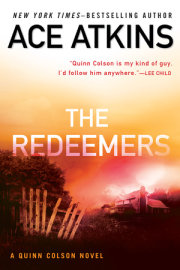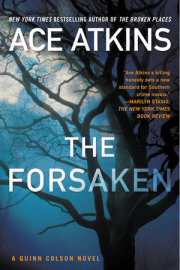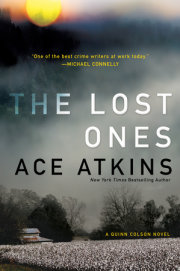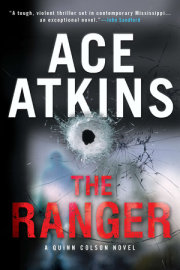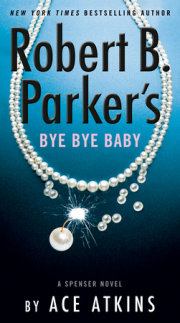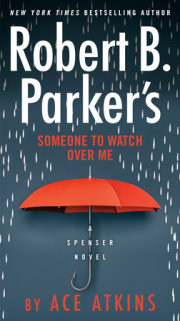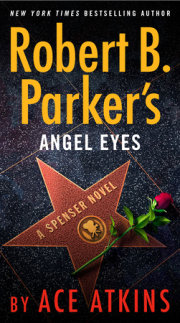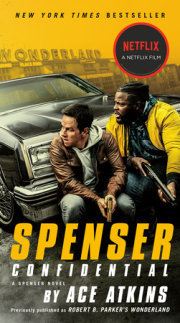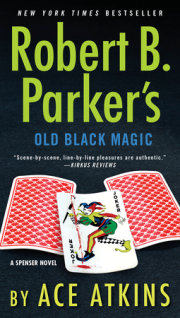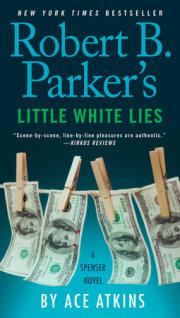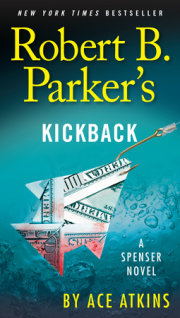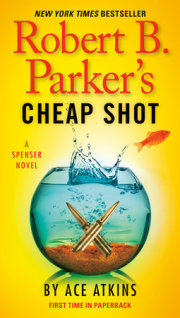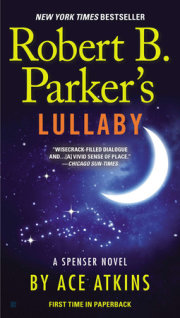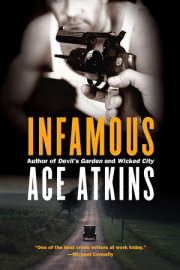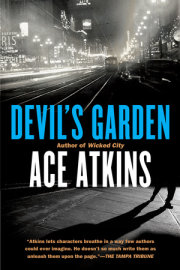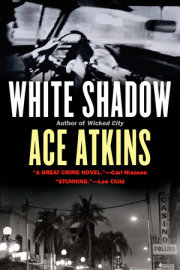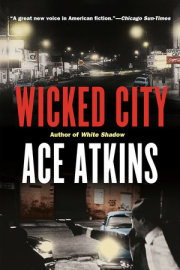Tashi Coleman Thin Air
podcast Episode 1: BRANDON Last year, Brandon Taylor’s sister contacted me through social media with a simple but urgent question: WILL YOU PLEASE COME TO MISSISSIPPI TO FIND OUT WHAT HAPPENED TO MY BROTHER? It was just like that, written in all in caps, with little information about who she was or who her brother had been. She said she’d heard our earlier podcasts about missing people, murders, and botched police investigations. Over the course of the next several months, Shaina Taylor messaged me with countless newspaper articles, family photos, and details of candlelight vigils and walk-a-thons to find out who killed Brandon. On the last day his family saw him, Brandon said he planned to go deer hunting after school, a regular pastime in north Mississippi. He came home, grabbed a cold ham biscuit and a Mountain Dew and his Remington rifle. He parked his Chevy Apache pickup off a county road and walked into a large parcel of land that adjoined a national forest. He never walked out. For days, rescue crews searched the woods, crossing over the same thick forest time and again. More than a week later, Brandon’s body was found, ravaged by animals, time and weather. The local sheriff ruled his death a suicide after a brief investigation. His rifle was located nearby, fired once. A bullet in his skull. His family and friends never believed it. His sister said every step of the police and forensic work had been a mess. A proper autopsy was never performed and possible suspects never questioned. Not to mention, she said, no one in their county ever wanted the case solved. The truth would only embarrass some powerful people and call into question the motive of the county sheriff, a good and decent old man named Hamp Beckett. Over a series of dozens of heartbreaking messages, Shaina Taylor turned to us and said we were her last hope. We receive countless requests like Shaina’s every day from all over the country. Thousands of people disappear or die without solid answers for their families. Shaina said her brother lived an idyllic life in a small Southern town. She called him a normal fifteen-year-old boy, with loads of friends, a classic old truck, and a new girlfriend he’d met over that past summer. She said he was a great baseball player who hoped to play in the major leagues, a guitar player who idolized Garth Brooks, and a blossoming journalist. The last part of what got me. Brandon Taylor had been a student journalist and had been a valuable member of the yearbook staff. He could’ve been anyone on our team of reporters. His family deserved answers. So last summer, I packed up the few belongings that I have and met up with my producer, Jessica Torres, to drive from New York City down to Tibbehah County, Mississippi. It’s a rural county known for sweet potatoes and some recent sensational stories about drug dealers and a young crusading sheriff – coincidentally or not, the nephew of the old sheriff. Some real Walking Tall
meets Faulkner kind of stories. As always, we tried to make ourselves invisible as we worked, talking to Brandon’s family members, friends, and local law enforcement, both retired and present. What resulted wasn’t quite the story we hoped to find. Instead, we uncovered something much darker and more sinister, a true meditation on today’s society. What do we truly value? Lies or facts. Posturing or morality. But to explain all that now would be taking you way too far down the country roads of Mississippi. First, I must tell you about this boy, Brandon Taylor, and his 1955 Chevy Apache truck. It was a cold, rainy day in November 1997 and there was a rumor about the largest buck in the county wandering somewhere near County Road 334 . . . 1 Lillie Virgil had been bird-dogging Wes Davis’s sorry ass for most of the summer, from Panama City to New Orleans and now back to Biloxi. The top-shelf turd leaving had left a trail of filthy motel rooms, unpaid restaurant tabs, and jilted strippers. The last one being his undoing, a cute little piece of tail named Twilight who he’d brought with him from Tibbehah County on his run from the law. He was wanted on charges of drug trafficking, racketeering, and the attempted murder of a close friend of Lillie’s, a one-armed trucker named Boom Kimbrough.
“This is it?” Lillie said, pointing to the old neon sign reading STAR INN. It was early morning, not long past dawn, as the two had made the drive all the way from Memphis through the night to the Gulf Coast. Through the open windows, you could smell the salt air on the hot wind.
“Yep,” Twilight said, playing with the ends of her bleached blonde hair, the tips tinged with a purplish hue. “We spent a week here last month. Eating shrimp po’ boys and drinkin’ Jim Beam. Now do I get my money or what?”
“Depends on if he’s here,” Lillie said. “And sweetie? Would you mind not putting your feet on my fucking dash.”
The girl took down her bare feet, with those stubby purple painted toes, as Lillie parked the gray Dodge Charger across the road, right outside the Sharkheads T-shirt shop, the entrance a wide gaping mouth with sharp teeth. Across the road, The Star motel sign advertised LOW RATES. JACUZZI ROOMS. CABLE TV & SWIMMING POOL. Real class with a capital K.
“Did Wes at least spring for the Jacuzzi?” Lillie asked.
“No, ma’am,” Twilight said. “That should’ve told me something. We got a cheap-ass room overlooking the fucking parking lot. I laid out on the beach every day while he lay in bed watching goddamn cartoons and smoking American Spirit lights. I’d get in as the sun was going down, thinking we were going for a steak dinner, and he’d just be lying there drunk as hell and wanting me to suck his peter.”
“That’s some real romance right there, kid,” Lillie said. “Bogart and Bacall shit. Now would you reach in the back seat for my binoculars? I think I spot Romeo up there on the second floor scratching his nuts.”
Five days ago, Twilight, whose real name was Tiffany Dement but went by Twilight to avoid professional confusion, checked in with her momma back in El Dorado, Arkansas. Lillie, a U.S. Federal Marshal, had visited Mrs. Dement back in June and made sure the woman kept her on speed dial if she heard a word from her daughter, a former straight-A student and churchgoer. Momma was worried sick, as her baby had left town six months before high school graduation, sometimes sending home money but more often just post cards from Audubon Zoo in New Orleans, Panama City Beach, or Graceland. The last one really impressed the woman as it contained a recipe for Elvis’s favorite meatloaf.
“Looks like your boyfriend cut his hair.”
“He ain’t my boyfriend.”
“If you suck a man’s peter while he’s watching SpongeBob playing his fucking nose flute than y’all got some kind of personal deal.”
“Damn, you’re hard woman, Miss Virgil.”
“Just honest,” Lillie said, turning and reaching down in the console between them for a pack of Bubbalicious. She’d been chewing the hell out of it after she quit smoking. Damn, it hadn’t been easy.
“Is that him?” Twilight asked. “Is that Wes with his shirt off? Can I see?”
Lillie handed her the binoculars and reached for her cell, Lillie calling in the Biloxi police before making the arrest. She could easily handle it herself but would rather not have to deal with some local fuckwads complicating things. Twilight lifted the binoculars up to the railing, where it looked like Wes Davis was licking the frosting off a donut. He used to have a shaggy seventies-style look, an uglier version of Scott Glenn in
Urban Cowboy, but now he was jailbird bald. Almost like he was resigned to his fate.
“I don’t know what I saw in that man,” Twilight said, shaking her head. The early morning light catching the glint from the ruby stud in her pug nose as she shook her head.
“Probably reminded you of your worthless daddy.”
“How’d you know my daddy was worthless?” Twilight said, still twisting at the ends of her purplish hair, her face a wide question mark.
Lille leaned into the wheel of the Charger, eyes hidden behind a pair of Ray-Bans with big silver lenses and just said, “Lucky guess.”
“He didn’t touch me or nothin’ if that’s what you’re saying.”
“Your daddy or Wes Davis?”
“Daddy, of course,” she said. “Wes Davis humped me like a mangy damn dog first night we met. Took me back to the VIP Room at Vienna’s Place in Jericho and got five damn lap dances in a row. Had the DJ play nothin’ but some old band called Def Leppard. You know ‘Pour Some Sugar on Me,’ ‘Pyromania,’ all that shit? And then didn’t pay me a dime. Said what was between me and him was personal. Wish I’d known that arrangement before I started shifting his gears.”
“Next time get paid up front,” Lillie said. “Don’t be anyone’s punch.”
“Why are you so damn hard, Miss Virgil?” she said.
“You know what?” she said. “I never gave it a second thought.”
“You drive like damn Dale Jr. and keep a loaded Winchester 12-gauge in your trunk,” she said. “I seen it when you loaded up our bags up in Memphis. You’re taller than my daddy and most boys I know, got an ass like an NFL linebacker, don’t talk much except for when you’re cussin’ or telling folks what to do. You don’t back up for no man, do you?”
“That’s enough, sister Twilight,” Lillie said. “My big ass is full of smoke. And I think I can take it from here.”
“Money?”
“In the dash,” she said.
Twilight looked kind of sheepish about it until Lillie nodded to the glovebox and she opened it to find a fat envelope inside stuffed with cash. “Can I at least stick around and see how it goes down?”
“Only if you shut your damn mouth,” Lillie said. “And promise to stay the hell out of the way.”
— Senator Jimmy Vardaman arrived at the Neshoba County Fair that morning triumphant as hell after beating the establishment favorite two-to-one in the run-off in June. His long silver hair was slicked tight to his skull and he’d dressed for success in khakis and a blue-and-white gingham shirt rolled to the elbows. A real man of the people with a big toothy grin and a bright gold watch. It was a warm and muggy morning, Vardaman up on the dais as his supporters sat in church pews laid out underneath the Founder’s Square tin-roofed pavilion. He announced he sure was ready to dig deep into the muck in Jackson and serve the working folk on Mississippi.
Yes, sir. Yes, sir. Just the mention of the working man sent a sea of red bandanas swirling in the crowd, his symbol worn around the necks of his supporters. Rings of sweat bloomed from under his arms and across his chest as he spoke like an old-time preacher. His face was flushed with sun and heat like he worked outdoors, but he really just hung out at the Country Club of Jackson.
“We’re all just foot soldiers in a long history of American exceptionalism,” Vardaman said. “This past year I’ve been called a racist and a radical. But let me tell you something, friends, don’t you listen to what the fake news tells you. We’re on a rendezvous with destiny this fall. Those people want to tear down our statues. Our flags. But that dog don’t hunt here in Neshoba. We know truth. We know honor.”
Sheriff Quinn Colson turned to his wife, Maggie, her jaw muscles clenched so tight they looked like walnuts. Her pale green eyes scanning over the crowed, in anger and disbelief at what she was seeing and hearing, spinning her wedding ring over her finger. “Jesus God.”
“Don’t give him any ideas,” Quinn said.
“I think I may puke.”
Much of the crowd was on its feet, in the shade of the pavilions wide metal roof, waving the red bandanas and yelling, most of the yelling incomprehensible incomprehensibly as Vardaman spread his hands wide and soaked in the praise, palms outstretched. An elderly woman in a wheelchair, oxygen tubes going up her nose, held a WOMEN FOR VARDMAN sign decorated with the stars and bars of the Confederate flag. Sweat trickled from Quinn’s brow and he removed his Tibbehah County Sheriff’s ball cap to dry his face.
He’d been sheriff now for nearly a decade, and in that time he wasn’t sure the state was getting any better. That was the entire reason he’d retired early as a U.S. Army Ranger, believing he could make a difference, fighting corruption, drug running, and violence in his own back yard.
“If that man is elected governor, he’ll set Mississippi back fifty years,”
Maggie said.
“Considering where we are now,” Quinn said, “that’d put us somewhere during Reconstruction.”
The scene around Founders Square on the Neshoba fairgrounds looked as if it might’ve come from a Norman Rockwell painting. Shoeless kids ran wild with packs of dogs behind them, oblivious to the speeches going under the big pavilion surrounded by dozens of brightly colored cabins. Every summer, families gathered for two weeks of carnival rides, deep-fried food, horse races, and livestock shows that culminated in the most important stump speeches in the state. Maggie’s family had been coming for decades.
Quinn was born and raised in Mississippi, but this was his first time at the fair, coming at Maggie’s urging to meet his new extended family, after their wedding in June. He was a tallish, muscular man with a chiseled face of sharp planes and edges, dark green eyes with a hard glint in them. He had on blue jeans and a starched sheriff’s office shirt that morning, despite it being nearly a hundred degrees. Compared to Camp Anaconda in Afghanistan, Mississippi in August felt like a cool spring day.
He shifted in his seat in the long wooden pew, feeling the Beretta digging into his hip.
“You think he’ll start singing some old hymns?” Maggie said. The old woman beside her shushed her and held her sign even higher in her skinny, frail arms.
“Maybe, ‘What a Friend We Have in Jesus.’”
“Jesus would think he’s an asshole,” Maggie said. “Nobody cares about what he’s done or that he doesn’t even have a real agenda. This is the most broke-ass state in the Union. How about you fix our damn roads before trying to sell me on your Southern history bullshit.”
“Don’t blame me,” Quinn said. “The Colson family joined up with the Union in Corinth. They didn’t give a damn about supporting plantation owners. We were too damn broke.”
“Rendezvous with destiny?” Maggie said, arching an eyebrow.
“This is a race about conviction and moral fiber . . . ’’ Vardaman said, continuing, shaking his fist as he spoke, talking down from the lectern on the hundreds who’d gathered to hear him speak.
Quinn looked up and locked eyes with Vardaman, the man seeming to lose his place for a beat. He glanced over to a group of men hanging outside the shade of the pavilion, s. Several of them dressed in military style clothes, guns on their hips. Quinn had heard of them, folks called them The Watchmen Society.
“Moral fiber,” Quinn said. “Interesting choice of words.”
“I don’t think I can take much more,” Maggie said, tugging at his arm. Her wrist was wrapped in thin leather bracelets and chains, nails cut short and painted black. Under her right arm was tattooed the words,
BE HERE NOW. Back in Tibbehah she’d been a bit of an anomaly, the kind of woman old folks might call a hippie. But Maggie was Maggie and Quinn loved her for it.
“Don’t you want to hear the big finish?” Quinn said. “I think he might just be warming up.”
“Not unless his head spontaneously combusts,” she said, sliding her hand down on his knee. “Now that’s something I’d like to see.”
Vardaman had kept a big hunt lodge in Tibbehah County for decades, the source of wild rumors and sustained fact, a place where he’d worked out deals with some of the most corrupt sorry-ass people in North Mississippi. Several times Vardaman had been on the fringe of people Quinn had either sent to jail or shot. But Vardaman always slipped clear of it, like a man who stepped in cow shit and came out smelling like Chanel No. 5.
“If we don’t see this through,” Vardaman said. “You will be forced to bury our rich history and tradition in the red clay of Neshoba. I think our moral fiber is too tough for that. Come on. Walk with ole Jimmy.”
“How about me and you take a walk, Mags?”
“They sell daiquiris and margaritas by the tilt-a-whirl,” Maggie said.
“Can’t have an elected official drinking during daylight,” Quinn said. “We’ll have to be like regular folks and sip whiskey when the sun goes down.”
“How about I buy you a sausage biscuit at the Piggly Wiggly general store?”
“Now you’re talking,” Quinn said. “And a tall coffee, too. I’d rather spend our time watching the livestock show.”
“There’d be less bullshit.”
Quinn pulled a Liga Privada cigar from his shirt pocket as he caught Maggie’s eye and nodded, both standing and making their way off the pew and past the Vardaman supporters who were again on their feet, waving their red bandanas. Damn proud rednecks with few who looked as if they actually did manual labor. The Watchmen folded their arms over their chest and stared behind their dark sunglasses as they left the pavilion. Walking away, Quinn heard something about the Southerners being pushed out of their home by immigrants and gang bangers. They looked scared but determined as hell.
Vardaman said wanted his people to stand their ground and turn back to clock to a more glorious time.
“Turn back the clock?” Maggie said. “Christ almighty. Is he really going to win?”
“Hate tell you,” Quinn said. “But he already has.”
— “You’re going to kill him,” Twilight said. “Aren’t you?”
“No,” Lillie said, watching the shadowed figure disappear from the railing and head back into his room at the Star Inn. “I’m not going to kill him.”
“But you want to?”
Lillie didn’t answer. She’d wait until the locals got there, close off any exits, and then knock nice and polite on his door. How it all went down would be up to Wes Davis’s sorry ass.
“I’m sorry about your friend.”
Lillie nodded, and damn if she didn’t feel herself tearing up behind her sunglasses, just thinking about the condition they left Boom in. Davis and his late pal, J.B. Hood, had taken to Boom with a couple of Louisville Sluggers, the cowardly way of knocking a man who was six-foot-six and two- sixty down to his knees. Nobody was sure he would make it, as he slid in and out of a coma, coming to and not being able to see or hear right for a while, having to go through therapy just to walk straight. Yeah, Twilight was probably right. She really wouldn’t get too emotional if a shit bird like Wes Davis happened to make the wrong play.
“I’m not what you think,” Twilight said, removing the cash from the envelope and counting out the cashit out quick with a licked thumb. She tucked the wad into a pink lacy bra.
“Just what do I think?”
“I’m not damaged or trash,” she said. “I know what I want. God gave me this body to flaunt. And I’d rather eat filet mignon than a meatball special at Subway.”
“Preach, sister,” Lillie said, watching two patrol cars show up in her rearview right by the shark’s mouth. She reached for her door handle and looked right at Twilight. “See you around.”
“Promise you won’t kill him,” Twilight said. “He’s a real asshole, but I kinda like him. He could be gentle. Said he loved me when he was real drunk on that Turkey.”
“How far can you get on that money?” Lillie said.
“Why?”
“After the show’s over, it’s time for you to start travelin’.”
“I can get drunk on less than twenty dollars.”
“Damn,” Lillie said, getting out and walking to the back of the Charger to retrieve her favorite shotgun and some extra shells. “That’s a true talent. Good luck with that.”
Copyright © 2019 by Ace Atkins. All rights reserved. No part of this excerpt may be reproduced or reprinted without permission in writing from the publisher.

